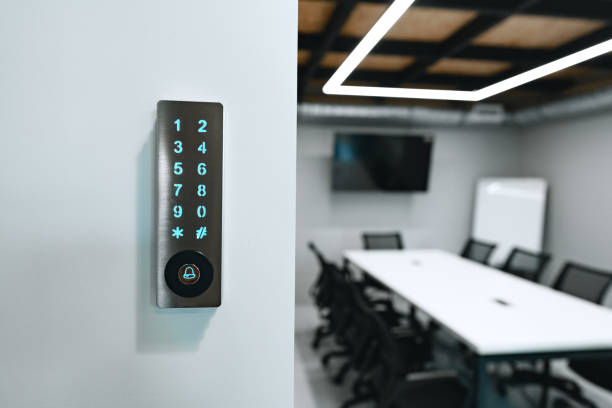In an era of rapidly advancing technology, even the most fundamental aspects of our daily lives are undergoing remarkable transformations. One such example is the electric door lock – a simple yet pivotal innovation that has brought convenience, security, and flexibility to the way we secure our homes and businesses. The evolution of electric door locks has revolutionised access control, providing a plethora of benefits over traditional mechanical locks.
The Rise of Electric Door Locks: A Technological Leap
Electric door locks have emerged as a solution that combines convenience, security, and control in ways that mechanical locks simply cannot match. These locks are operated using electricity or wireless signals, allowing for various methods of entry including key cards, fobs, PIN codes, biometric recognition, and even smartphone apps. This versatility has made them a preferred choice for residential, commercial, and industrial settings alike.
Advantages Galore: Unveiling the Benefits
- Enhanced Security: Electric door lock offers a higher level of security compared to conventional locks. Features like biometric recognition ensure that only authorised individuals can gain access, reducing the risk of unauthorised entry and break-ins. In addition, the absence of traditional keys eliminates the possibility of them being copied or lost.
- Convenience: The hassle of fumbling for keys or worrying about lost keys is a thing of the past with electric door locks. Users can simply swipe a card, enter a code, or use their fingerprint to unlock the door. This is particularly advantageous in scenarios where quick and frequent access is required.
- Remote Access: One of the standout advantages of electric door locks is the ability to grant remote access. Through dedicated apps, homeowners or business owners can lock and unlock doors from virtually anywhere. This proves invaluable for granting access to visitors, service personnel, or even for ensuring deliveries are securely placed inside.
- Audit Trail: Electric locks often come with the capability to maintain an audit trail of who accessed the door and when. This feature can be instrumental in security investigations, monitoring employee attendance, and maintaining accountability.
- Integration with Smart Systems: Electric door locks can seamlessly integrate with broader smart home or building systems. They can be programmed to work in tandem with security cameras, alarms, and lighting systems, creating a comprehensive security network that adapts to changing conditions.
- Reduced Maintenance: Traditional locks are prone to wear and tear, leading to eventual replacements. Electric locks are generally more durable and require less maintenance over time.
- Customisable Access: Different users can be granted access at specific times and days. This is particularly useful for managing access for employees, temporary visitors, and renters, without compromising security.
Challenges and Considerations
While electric door locks offer a host of advantages, there are some considerations to keep in mind. Power outages can potentially lead to lockouts if battery-powered locks are not adequately maintained. Similarly, reliance on technology means there’s a risk of electronic malfunctions or hacking attempts. As with any technology, it’s crucial to ensure proper installation, regular updates, and adherence to cybersecurity best practices.
The Road Ahead: Innovations and Adoption
As technology continues to evolve, electric door locks are also poised for further advancements. Increased integration with artificial intelligence and machine learning could lead to more advanced security algorithms that can predict and prevent security breaches. Biometric recognition systems are also becoming more sophisticated, enhancing accuracy and reliability.
The adoption of electric door locks is steadily growing across residential, commercial, and industrial sectors. Homeowners are embracing the convenience and security, while businesses are recognising the potential for improved access control and operational efficiency. As the technology becomes more widespread, costs are likely to decrease, making electric door locks even more accessible.
Conclusion
Electric door locks represent a significant stride in the evolution of access control systems. They offer heightened security, unparalleled convenience, and the ability to adapt to modern lifestyles. While challenges exist, their advantages outweigh the drawbacks. As technology continues to advance, electric door locks are set to play an increasingly crucial role in shaping the way we secure our homes and businesses.
